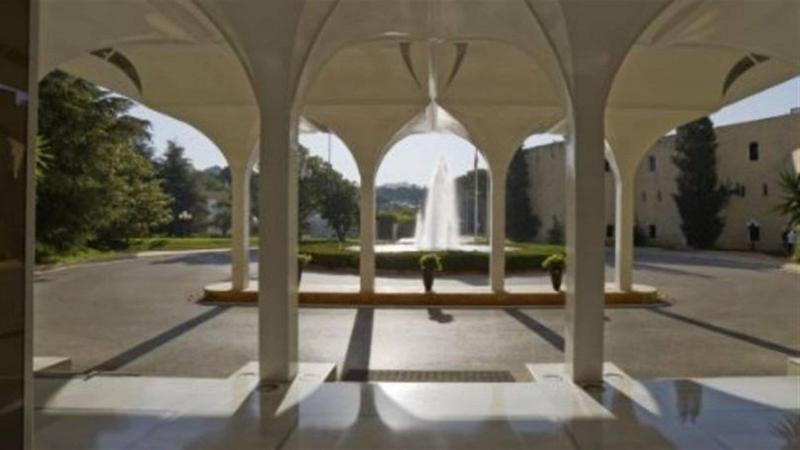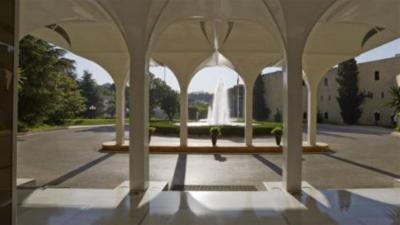After high-ranking officials concerned with the presidential elections relied on internal dialogue and external initiatives or meetings to pull this electoral process out of the current stalemate by the end of the year, their expectations have been dashed due to contrary developments both domestically and internationally, delaying the presidential election indefinitely. Political entities involved in presidential communications affirm that there is no serious external initiative at present, and the European efforts do not go beyond urging the quick completion of the presidential elections. Meanwhile, the Qatari representatives are still listening to some Lebanese factions but have not proposed any initiative or settlement or agreed on any names, contrary to what is being circulated.
Internally, presidential doors remain closed, as no major player has changed their position. On the Ain el-Tineh front, Speaker Nabih Berri intends to call for electoral sessions after the holidays, and even legislative sessions if necessary. The Speaker might convene a session to elect the president before the New Year, "in light of" ongoing communications with all factions and parliamentary blocs. Sources close to him confirm that he is committed to dialogue, as the basis for electing a president is internal agreement, which involves agreeing on presidential specifications along with a set of other understandings before agreeing on names.
These sources assert that Berri "has not tried dialogue and it did not work out" because the Christian parties did not respond to him. He will attempt again and does not consider himself a failure; rather, those who rejected dialogue are the ones who have failed, as rejecting meetings prolongs the crisis. In light of the communications Berri conducts, he will call for dialogue again if he senses any responsiveness, either in Ain el-Tineh or in the Star Square. Furthermore, communication between Berri and Bkerke is ongoing, with Berri supporting Christian-Christian dialogue. However, the opponents of dialogue, particularly the main Christian blocs, remain steadfast in their positions, and thus no breakthrough is expected at this level.
On the Bkerke front, even though Patriarch Mar Bechara Boutros Al-Rahi is consulting with his visitors about names proposed for the presidency, including those suggested by the head of the "Free Patriotic Movement," MP Gibran Bassil, there is no sign at this point that the Patriarch is willing to engage in the naming game or assume the role of a mediator to pull the presidential process out of its current vacuum and stagnation. Bkerke believes, based on past experiences, that if this effort fails, it will have negative repercussions on its historical role. Consequently, it is satisfied with proposing a preliminary roadmap for achieving this electoral process, focusing on defining the specifications of the prospective president and urging the relevant parties and parliamentary blocs to elect a president while raising the stakes against them and holding them responsible for the obstruction. Therefore, it does not appear that the Maronite Patriarchate will undertake the initiative to gauge the parties' sentiments regarding names and sift them to reach a consensus among everyone on one or more names.
Additionally, sources within the authority confirm that everything surrounding the presidential elections amounts to nothing more than "talking about talking," with no concrete proposals, and external communications remain within the realm of hopes that the internal parties will fulfill their roles. Visitors from Gulf countries affirm that there is no initiative to hold a dialogue or conference to bring together the Lebanese factions to produce a presidential settlement at this moment, nor is there any indication of a second "Doha Agreement." Rather, there may be external messages to express the countries' desire to expedite the election of a president, starting from the goal of maintaining stability.
Given this reality, several political entities are convinced that the internal presidential doors have been closed and will remain so unless a major player decides to break the "status quo" with a new proposition. Simultaneously, opposition factions see that the presidential process is practically stalled at the "Hezbollah" level, as it insists on the nomination of "Marada" leader Sleiman Franjieh for the presidency, while at the same time it is unable to reconcile between its Christian allies on one hand or to pursue another path on the other. Since Hezbollah's relationship with Iran is organic and strategic, and Iran is interacting with other countries, the consultations and side meetings among the countries concerned with the Lebanese file at the "Baghdad Conference" in Jordan might suggest that the presidential key is "Iranian," especially considering the American-European-Iranian convergence that produced the maritime border demarcation agreement. This is particularly true following the recent positive stance of the Iranian Foreign Minister towards Saudi Arabia. Therefore, Iran might send a signal to "Hezbollah," akin to what it did regarding the maritime demarcation, to open up discussions about other presidential candidates. Thus, in light of the local impasse, there seems to be an external possibility to unlock the presidential doors through Iran, which may use the presidential issue as a message of positive cooperation to Europeans, Americans, and Saudis by requesting Hezbollah to facilitate the election of a president.




